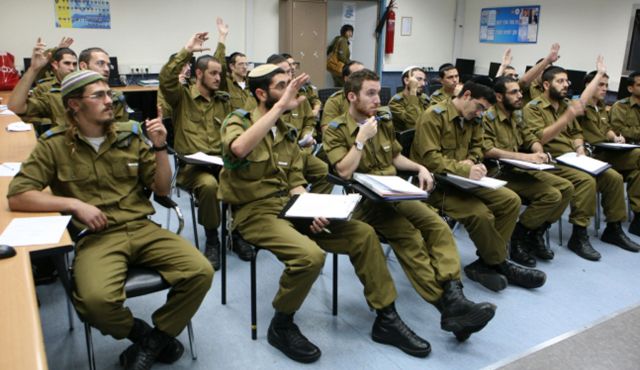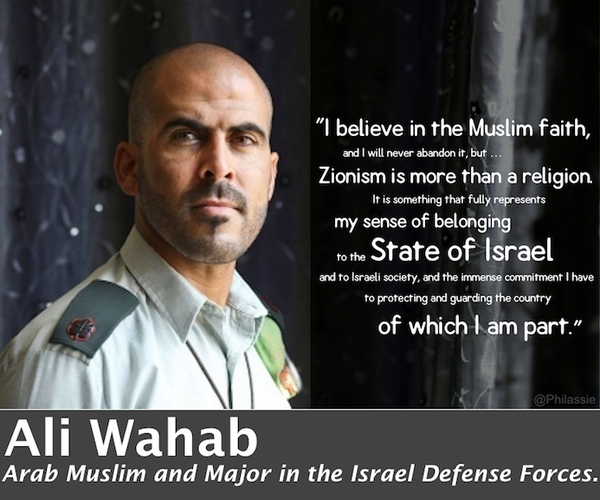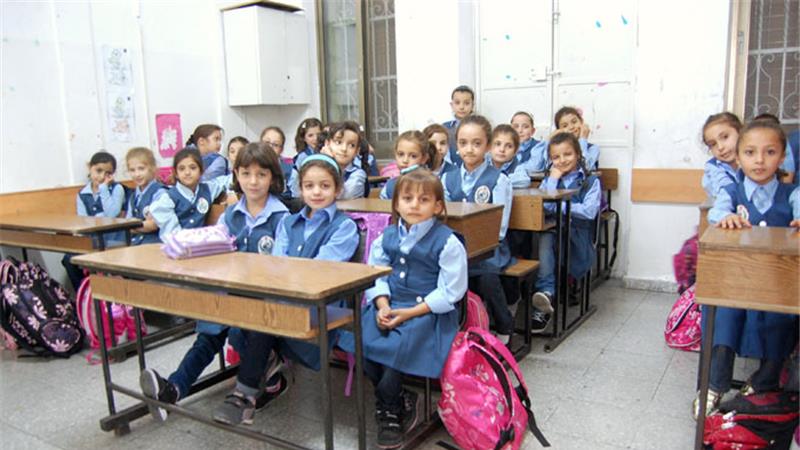Haredi, or ultra-orthodox Jews, often live in sheltered communities in Israel. Recently, young Haredim have been either leaving their religious background or their community norms in order to serve in the IDF. Many Haredim, often despite their family’s wishes, are choosing to serve and overall become more involved in the workforce of the secular world.

For many, joining the Israel Defense Forces serves as a great way to become part of the secular world and increase one’s own opportunities. As an alternative to IDF service, those who are unable to serve in the military for medical, religious, or other reasons, can serve in Israel’s National Service, working at schools, hospitals, or other institutions for one to two years.
While the participation of Haredim in the IDF and Israel’s National Service is on the rise, Palestinians have recently become more involved in this avenue of Israeli society as well, serving in the both. Many Palestinians want to help protect the country that is allowing them to live freely, to work, and to advance professionally. Abed, an Arab resident of East Jerusalem explains, explains that she chose to join Israel’s National Service because as an expression of loyalty to the State of Israel. She recognizes the benefits of being in Israel, all that it offers her, and wants to give back to the state in return.

By serving in the IDF or Israel’s National Service, an individual gives up their time and dedicates their efforts to helping ensure the security and development of Israel. The State of Israel recognizes this and as a show of appreciation, has been increasing the benefits for participating young people. For example, the IDF has increased the salaries of soldiers.
The IDF has decided to help soldiers with their higher education recently as well. A new program has been launched to fund university costs for combat soldiers and soldiers who lack sufficient family support, financial or otherwise. Ideally, the IDF would like to develop this program so that every individual in Israel that dedicates their time to serving the country can be helped with higher education in return.
Education is key to financial and professional advancement. Current and recently released soldiers are very enthusiastic about this new program that will financially support them in their university costs. While now financially supporting university costs, the Israeli government is also trying to develop high-school education in order to increase university opportunities already from a younger age.

In order to enter university, an applicant must fulfill matriculation exams. By completing the Israeli matriculation exams, an applicant can much more easily apply for a higher education degree. The Israeli government recently set up funding for Palestinian schools that allow students the opportunity to take these exams, and in turn, encourage students’ eligibility to attend university.
Unfortunately, the Palestinian Authority criticized this new beneficial program. While Palestinian residents, such as Abed who wants to advance herself academically and is happy to participate in Israeli society, the PA chooses to bad talk a program that can only increase opportunities for Palestinians.
Balancing between financial constraints and the many different ways to improve Israeli curriculums or encourage professional advancement in Israel, Israeli Minister of Education Naftali Bennett has been leading many beneficial changes in Israeli education. Bennett and the Education Ministry is dedicated to improving education opportunities for all of Israel. As Bennett says, “we have to give the tools and build capabilities for all of our kids to have 21st-century skills” in order to succeed and that is the Education Ministry’s goal for all children in Israel, regardless of their community or origin.
Contributed by CAMERA Intern Penina Simkovitz.
